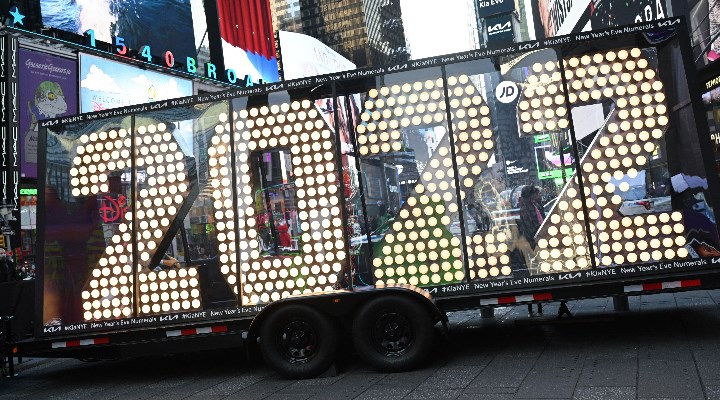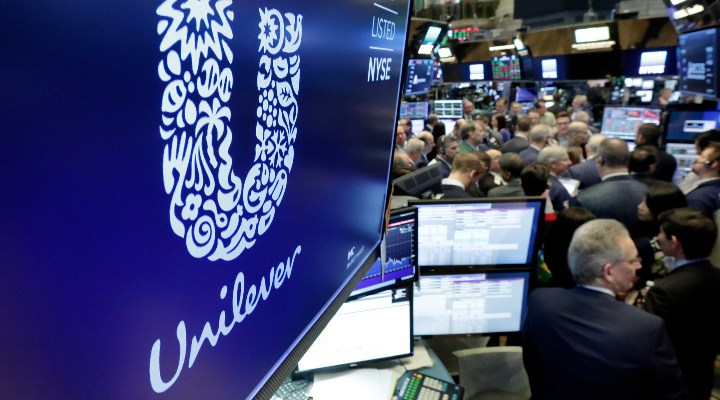
Companies with wide moats are difficult to compete with. And this advantage, paired with solid management of environmental, social, and governance risk, is an especially appealing combination for a long-term investment.
In other words, durability and sustainability, or what’s called ESG, are natural partners. ESG keeps a close eye on long-term risks that aren’t articulated by traditional finance.
Every company faces some sustainability risk, not least because of the industry in which it operates. For example, an oil and gas company will be highly exposed to potential environmental problems, while a consumer technology business will be exposed to social risks like data privacy violations.
Indeed, Morningstar research finds that the biggest ESG risk is in energy and utilities, with the smallest in technology and real estate.
A company’s approach to sustainability demonstrates how it anticipates and addresses these long-term risks. Companies that mishandle ESG issues could incur significant economic costs that jeopardise their ability to earn long-term, sustainable profits.
The risk rating from Sustainalytics, a Morningstar company that provides ESG research, ratings, and data, measures this with the Sustainalytics ESG Risk Rating. It considers two main factor – exposure, (a company’s vulnerability to ESG risk) and management (actions taken by a company to manage a particular ESG issue) – and blends them into a single score. The lower the number, the lower the risk.
In the table below, we refined our listing of the best companies to own in 2022 to highlight the ones with a low or negligible ESG Risk Rating Assessment, based on Sustainalytics' ESG Risk Ratings.
We didn’t include valuations for these companies; rather, we focused on the criteria that set an individual company up for success in the long term. So, while not all of these names can be considered a buy today, the series can serve as a great watchlist.
Here are the 46 companies that made the cut, ranked by the risk score.

You can explore the ESG Risk Rating score of each company under Morningstar coverage in the Sustainability tab of its stock Quote page.
Accenture (ACN)
Consulting firm Accenture has the lowest ESG Risk Rating of all the high-quality companies on our list. The firm’s risk is mainly related to its exposure to cyberattacks and its dependency on specialised talent, such as IT consultants and engineers, as it tries to keep up with client demand.
Clearly, Accenture is taking sustainability considerations seriously. Accenture CEO Julie Sweet noted during a quarterly call that sustainability “is a critical area for which technology is still evolving … We believe that every business must be a sustainable business, and yet companies are at very early stages of figuring out how to make this shift.”
Sustainalytics gives Accenture's ESG Risk Management a rating of strong. The board has a comprehensive data privacy policy. To attract and keep employees, Accenture has set gender and racial diversity targets, and provides same-sex and gender-transition benefits. It is building employee skills in high-demand technologies like the cloud.
Morningstar Research Services’ equity analyst Julie Bhusal Sharma is a fan, citing Accenture’s strong reputation for reliability and its “treasure trove of institutionalised industry expertise and experience.”
Accenture’s technological and strategic know-how, paired with its attention to sustainability considerations, is helping bolster profits. In fiscal-year 2021, Accenture’s operating margin widened to 15.1%, having expanded steadily over the previous decade.
Adobe (ADBE)
Second on our list is Adobe, developer of the iconic Photoshop and Illustrator solutions, the industry standard for image-editing software. These products are essential to what Adobe calls the “creative cloud,” which accounts for the bulk of its revenues.
“Because nearly all creative professionals use it, it makes it so all other creative professionals must use it,” writes Morningstar senior equity analyst Dan Romanoff. Adobe’s popularity means that when Adobe releases a new solution, it becomes widely adopted, benefiting from a network effect.
Adobe's management of material ESG issues also nets it a strong ESG Risk Management rating from Sustainalytics. The few risks it does face are competition for software engineers and potential data breaches within its data centres (because it relies on third-party hosting providers), but Sustainalytics doesn’t see these as particularly concerning.
Strong employee relations help Adobe’s ESG Risk Rating score too. In 2018, Adobe achieved gender pay parity across the 40 countries in which it operates and has extended maternity leave in the United States to 26 weeks. It is committed to sustainable product design, enabling digital document workflows and eliminating paper-based processes. A designated sustainability committee reports progress to the CEO.
Salesforce.com (CRM)
Salesforce.com revolutionised the software industry in 2000 with salesforce automation applications that could be accessed through a web browser and delivered over the Internet. This paved the way for the industry to sell software as a service, letting customers avoid high up-front costs, lengthy installations, and painful upgrade cycles.
“Salesforce.com remains the clear leader in salesforce automation,” declares Romanoff. “The company has gone from no product to 33% market share over the last 20 years.”
The software giant’s biggest problems are competition for software engineers and potential data breaches in its data centers. After all, it increasingly stores and processes larger amounts of sensitive information.
So why is Sustainalytics only minimally concerned? Because processes on security are strong: Salesforce employs a global privacy counsel, a chief trust officer, and a staff of certified information systems security professionals, and it maintains information security at the industry standard. Responsibility for compliance oversight is handled by its general counsel, buttressed by a whistle-blowing mechanism.
Sustainalytics rates the firm’s management of employee relations risks as above average. Salesforce’s chief equality office publishes pay equity data regularly. The firm has ambitious targets. While just a third of employees are women (indeed, in technology roles, it is just 23.5%), Salesforce aims to have 50% of its US workforce made up of underrepresented groups by 2023.
Sustainable Companies Can Still Have Controversies
To be sure, a spot on this list doesn’t mean that the companies’ sustainability efforts are flawless.
For example, in 2021, several shareholders called for Berkshire Hathaway (BRK.A) to publish an annual assessment of how it manages climate risks and handles diversity and inclusion efforts.
CEO Warren Buffett and Berkshire’s directors recommended against it, saying that its subsidiaries “are already making sound climate-related decisions” and that its decentralised businesses are “individually responsible” for their own diversity initiatives. The resolution ultimately did not pass.
That said, Berkshire’s energy division has a Morningstar Portfolio Carbon Risk Score that places it in the “high” category. Coal and natural gas generation accounts for 33% and 30% of 2020 owned power generation.
Even so, Berkshire holds a spot on our catalogue of sustainable companies because it is on the right track to transition the bulk of its power generation to renewable and noncarbon sources by 2050. As Morningstar Research Services’ sector strategist Greggory Warren observes:
“While [Berkshire Hathaway Energy] has not declared a net-zero emissions target, it has already seen a nearly 40% decline in carbon emissions over the past 15 years, with management recently noting that it will have reduced emissions 50% below 2005 levels by 2030.”
Remember, this list is about long-term sustainability, and not valuations. For guidance in that area, you can look to Morningstar’s US Sustainability Moat Focus Index.
From that perspective, not all the names on this catalogue of low-ESG-risk companies with Morningstar Economic Moat Ratings of wide can be considered a buy at the moment. Still, for investors interested in managing long-term ESG risks, they’re worth keeping a close eye on.
Editor’s Note: This article is based on the 2022 edition of Morningstar's Best Companies to Own. Find the full list of companies and read about our selection methodology




























